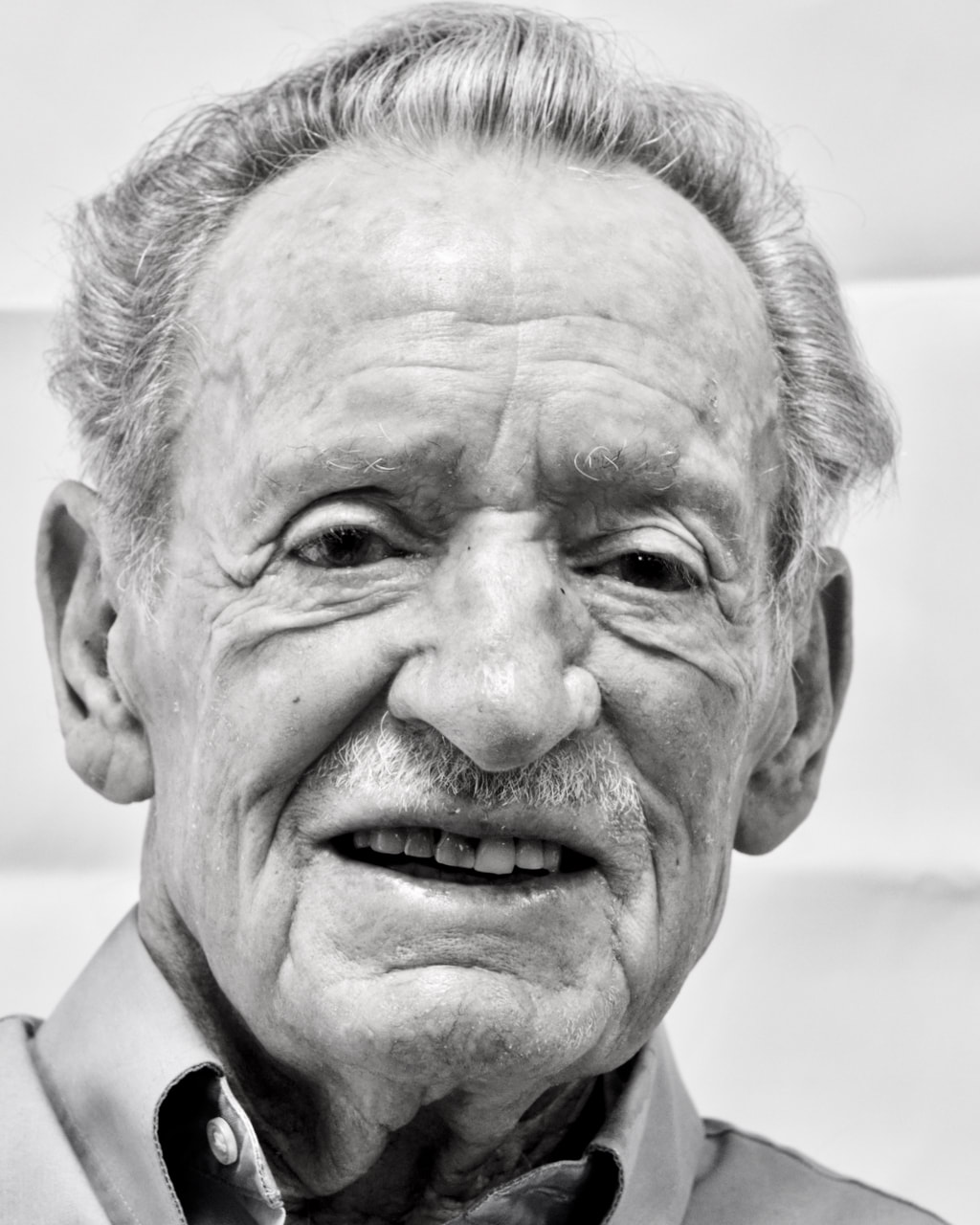PFC Thomas McCrary
US Army 86th Blackhawk Infantry Division
France, Germany, Austria, Luzon ’43-‘46
US Army 86th Blackhawk Infantry Division
France, Germany, Austria, Luzon ’43-‘46
Tom McCrary lived in Little River, NC and enlisted in in 1943. His father owned a drilling business and could have gotten him a deferment, but Tom said he was going. He was in the infantry and started out in a rifle company, but his aim got him transferred to a mortar company. They handled 81mm mortars. Tom carried the tube and later had to carry the 45 lbs. base plate. He was the 3rd gunner. If the first two gunners were killed, Tom would step in. They originally trained to go to the Pacific, but their orders changed when Patton needed more men for the Battle of the Bulge. They landed in Le Harve, France and there was an inch and a half of snow on the ground. They were equipped for the Pacific and were cold.
Tom went through France, Belgium, Germany and ended up in Austria. He arrived in Berchesgaden after it had been bombed by the US. The went down into the cellar and found barrels with brass handles on them full of beer. They were all fighting over who was going to get the beer first, but nobody got any beer until they tested the beer to make sure it wasn’t poisoned.
Tom got a 10 day leave and came home to North Carolina. His mother let him sleep in the front room that was reserved for “company”. “One morning when he was sleeping there a crop duster flew overhead and I dove off the bed and hid underneath. It was pretty funny.” Then he “looked out the front door and saw 50 German soldiers gathering beans.” “It was hard to believe I come home, and they are holding German soldiers there right outside my front door.”
Tom left Brevard and headed to California for amphibious assault training. After training he boarded a ship headed to Japan. “Between Luzon and Japan, they said there were 40 vessels, cruisers, destroyers and aircraft carriers in the formation headed for the Japanese mainland.” They eventually received word that the war had ended. “So they backed us up and said we needed to do a little cleanup on Luzon.” The Japanese were buried in caves and wouldn’t surrender despite the war being over. They wanted food and each day the US would lose a driver or two as the Japanese would emerge from the caves and hijack trucks carrying food.
Coming home wasn’t so easy. Between needing more inoculations to come back to the US and the ships filling up quickly, Tom ended staying an additional 18 months after the war ended, eventually coming home to Brevard where he worked for his father who ran a well drilling business. Tom tried to convince his father to buy some modern equipment. His father made him go 50/50 on the purchase. “We did pretty good. I was a superintendent with three crews going.” Tom retired in 1995. “I’ve been so fortunate to have good help. Some me stayed with me for 20-25 years.”
Tom lived in Crab Creek Road, formerly known as Little River. He moved only a mile and a half since he was born 93 years ago, so he considered himself a true native.
Thank you tom for saving the world.
Tom went through France, Belgium, Germany and ended up in Austria. He arrived in Berchesgaden after it had been bombed by the US. The went down into the cellar and found barrels with brass handles on them full of beer. They were all fighting over who was going to get the beer first, but nobody got any beer until they tested the beer to make sure it wasn’t poisoned.
Tom got a 10 day leave and came home to North Carolina. His mother let him sleep in the front room that was reserved for “company”. “One morning when he was sleeping there a crop duster flew overhead and I dove off the bed and hid underneath. It was pretty funny.” Then he “looked out the front door and saw 50 German soldiers gathering beans.” “It was hard to believe I come home, and they are holding German soldiers there right outside my front door.”
Tom left Brevard and headed to California for amphibious assault training. After training he boarded a ship headed to Japan. “Between Luzon and Japan, they said there were 40 vessels, cruisers, destroyers and aircraft carriers in the formation headed for the Japanese mainland.” They eventually received word that the war had ended. “So they backed us up and said we needed to do a little cleanup on Luzon.” The Japanese were buried in caves and wouldn’t surrender despite the war being over. They wanted food and each day the US would lose a driver or two as the Japanese would emerge from the caves and hijack trucks carrying food.
Coming home wasn’t so easy. Between needing more inoculations to come back to the US and the ships filling up quickly, Tom ended staying an additional 18 months after the war ended, eventually coming home to Brevard where he worked for his father who ran a well drilling business. Tom tried to convince his father to buy some modern equipment. His father made him go 50/50 on the purchase. “We did pretty good. I was a superintendent with three crews going.” Tom retired in 1995. “I’ve been so fortunate to have good help. Some me stayed with me for 20-25 years.”
Tom lived in Crab Creek Road, formerly known as Little River. He moved only a mile and a half since he was born 93 years ago, so he considered himself a true native.
Thank you tom for saving the world.

